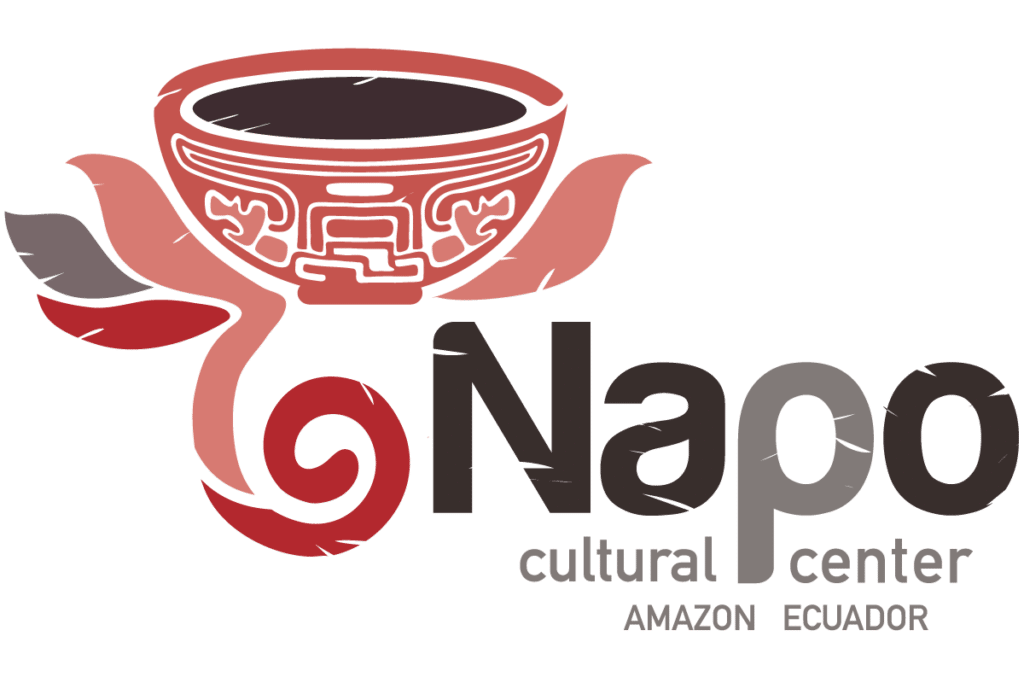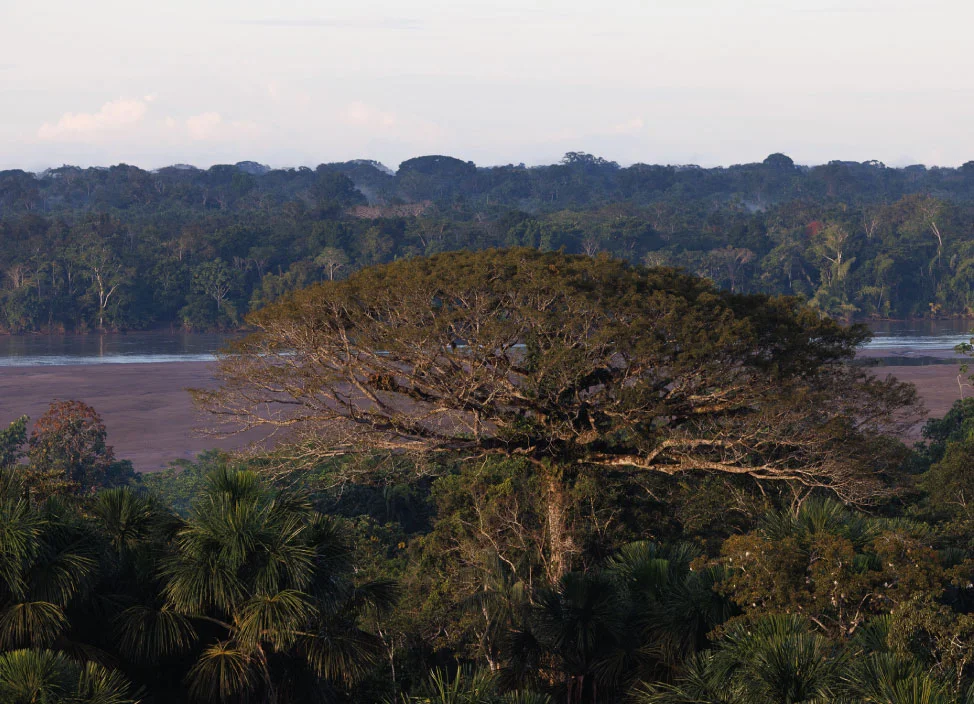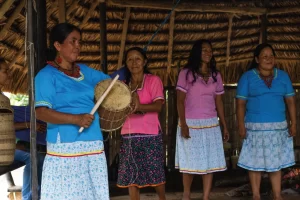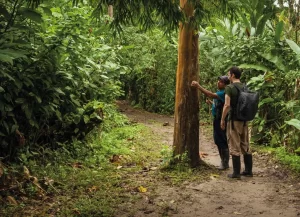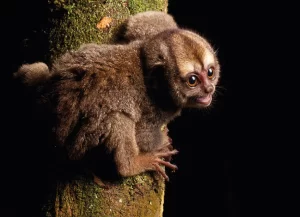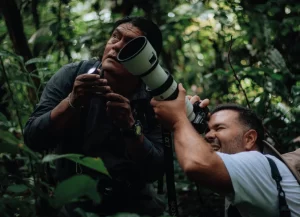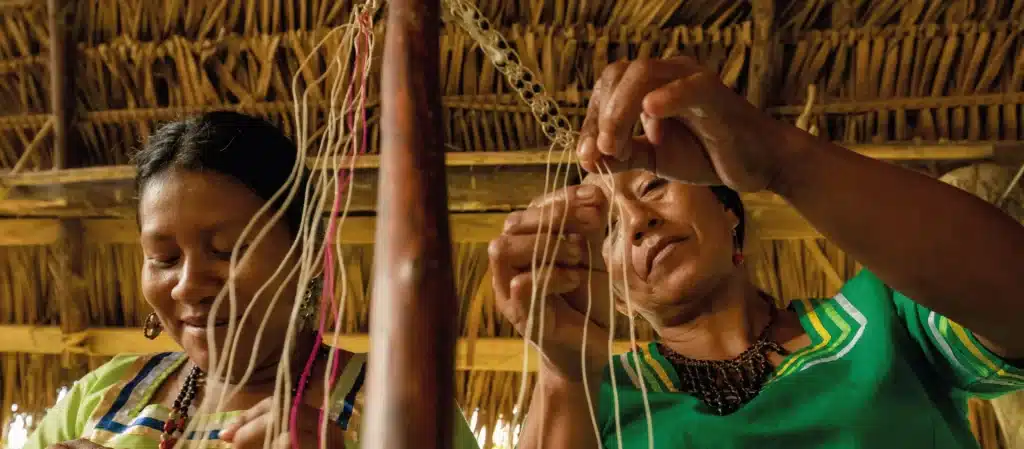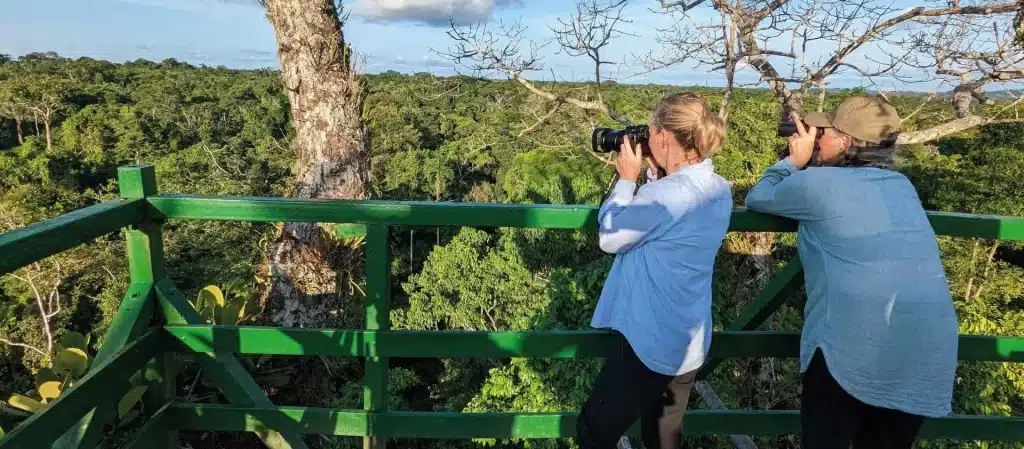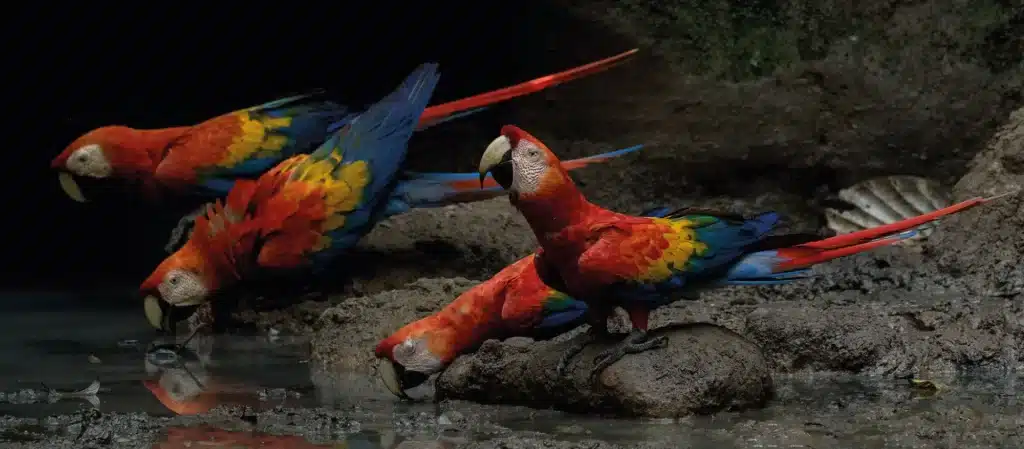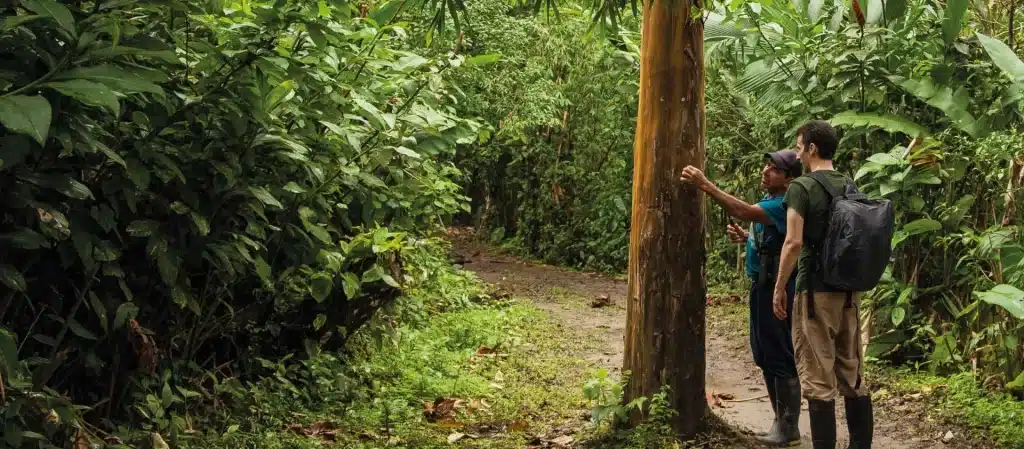Introduction:
The Ecuadorian Amazon is a biodiversity paradise, home to thousands of unique species of flora and fauna on the planet. Within this invaluable ecosystem lies Yasuní National Park, a protected area that hosts one of the most biodiverse tropical rainforests in the world. In this context, the Napo Cultural Center plays a crucial role in environmental conservation and the protection of the traditions of the Kichwa Añangu community. In this article, we explore how this lodge, located in the heart of the Amazon, is significantly contributing to conservation and what you can do to support this cause while enjoying a unique experience in the jungle.
1. The Heart of Yasuní: An Ecosystem at Risk
Yasuní National Park is not only a refuge for endemic and endangered species but also one of the most threatened regions by human activities such as deforestation, oil exploitation, and agricultural expansion. This context makes the conservation of the Amazon rainforest more urgent than ever.
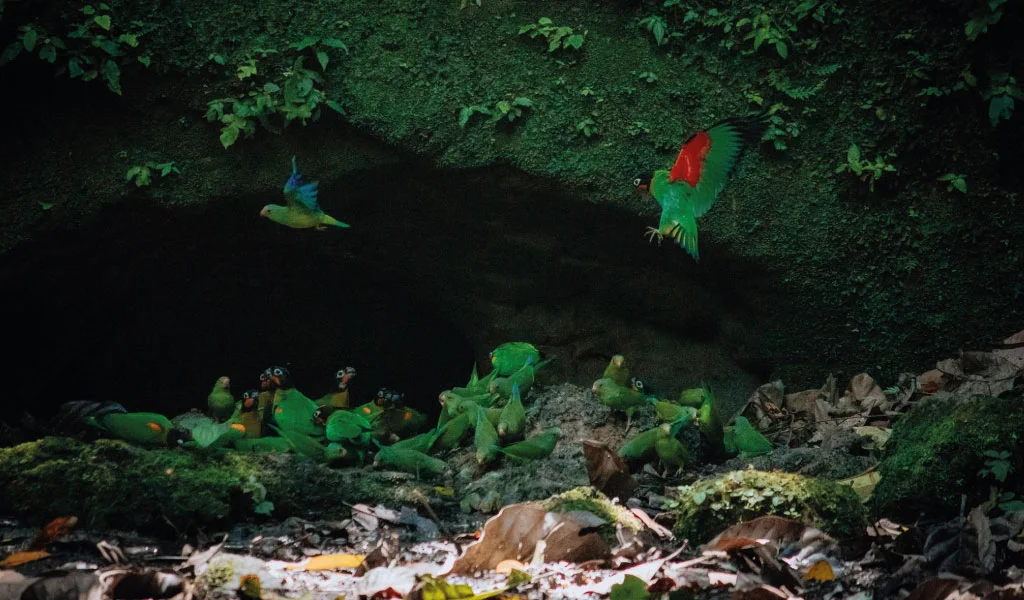
With over 2,500 species of trees, 150 species of mammals, and more than 600 species of birds, Yasuní is considered one of the most biodiverse places on the planet. However, its preservation depends on ongoing conservation efforts involving both local communities and visitors who appreciate nature.
2. The Napo Cultural Center: A model of sustainable tourism
The Napo Cultural Center has become a benchmark for sustainable tourism in the region. As part of the effort to conserve Yasuní, the NCC promotes tourism that respects the natural environment and the traditions of the Kichwa Añangu community. The lodge is committed to responsible management of natural resources, using ecological practices that minimize environmental impact.
The Napo Cultural Center is an example of how tourism can be a powerful tool for conservation. While allowing visitors to get close to Amazonian biodiversity, this tourism model generates resources that are directly reinvested in environmental protection and the well-being of the community.
3. Conservation through education and community participation
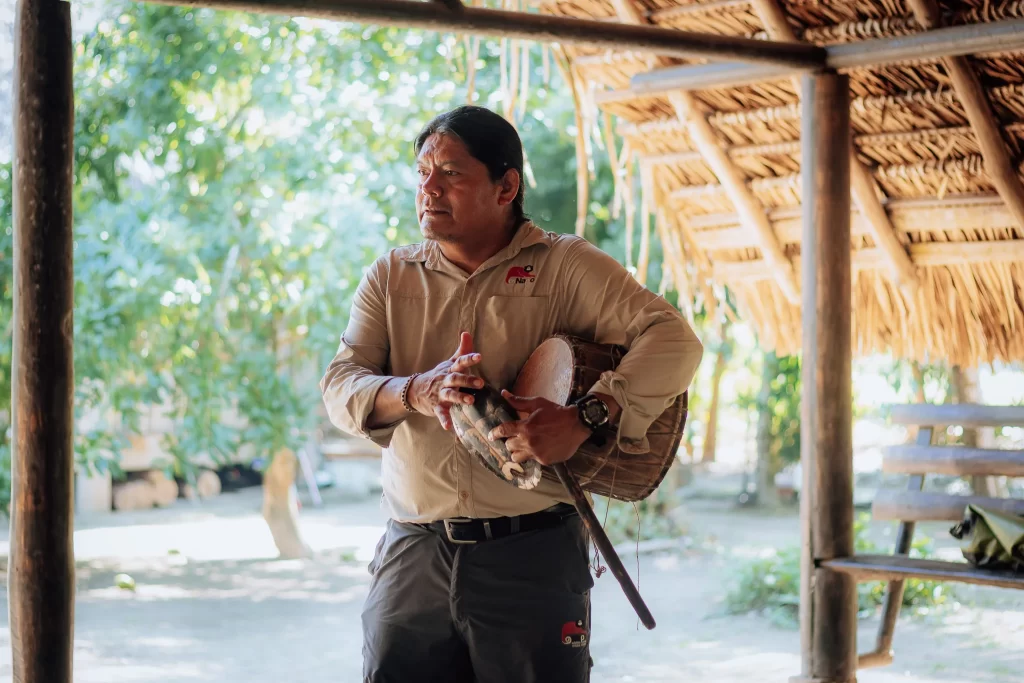
One of the most outstanding aspects of the Napo Cultural Center is its focus on environmental education. Visitors have the opportunity to participate in activities guided by members of the Kichwa community, who teach them about the flora, fauna, and ancestral traditions that maintain the ecosystem’s balance.
Additionally, the lodge works closely with the Kichwa Añangu community to promote sustainable agricultural practices and the reforestation of deforested areas. Through these initiatives, women and men in the community are adopting agricultural techniques that not only preserve the land but also foster economic self-sufficiency without harming the environment.
4. Biodiversity protection: A commitment from all
Amazonian biodiversity is vital for global climate balance. Tropical forests like those in Yasuní act as the planet’s lungs, absorbing large amounts of carbon dioxide and regulating the climate. Massive deforestation driven by unregulated human activities is endangering this balance. This is where initiatives like those of the Napo Cultural Center have a direct impact.
The NCC actively participates in wildlife monitoring projects and the protection of endangered species, such as the giant otter. The creation of ecological trails and wildlife observation also contributes to raising tourists’ awareness about the importance of protecting these unique habitats.
5. The role of the visitor: How to contribute to conservation
As a visitor to the Napo Cultural Center, you will not only have the opportunity to explore an unparalleled natural environment but also contribute significantly to the conservation of the region. By choosing responsible tourism, you are supporting the lodge’s conservation initiatives and contributing to the local economy of the Kichwa Añangu community.
Moreover, by participating in activities such as bird watching or nighttime jungle walks, you will be learning about the efforts to protect this ecosystem and how you can apply more sustainable practices in your daily life. Visitors become ambassadors of conservation, carrying the message of the importance of protecting the Amazon worldwide.
Conclusion:
Conservation in the Amazon is a monumental challenge, but with the support of initiatives like the Napo Cultural Center, important steps are being taken to preserve one of the richest and most valuable ecosystems on Earth. The Kichwa Añangu community, along with tourists and allied organizations, are demonstrating that sustainable tourism, environmental education, and community participation are key to ensuring a future where Yasuní’s rainforest remains a refuge for wildlife and a source of well-being for future generations.
f you wish to be part of this conservation effort, we invite you to visit the Napo Cultural Center. Experience a unique adventure in the heart of the Ecuadorian Amazon, while supporting a tourism model that promotes sustainability and environmental protection. Book your stay today and be part of the change.
Photographs © Javier Sandoval
